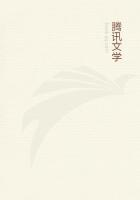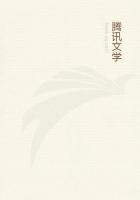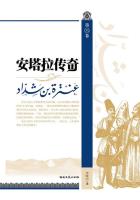'a very daring enterprise,' he said. Canada was then entirely French, and the British only came afterwards... Lord M. explained this very clearly (and much better than I have done) and said a good deal more about it. He then read me Durham's despatch, which is a very long one and took him more than 1/2 an hour to read. Lord M. read it beautifully with that fine soft voice of his, and with so much expression, so that it is needless to say I was much interested by it." And then the talk would take a more personal turn. Lord M. would describe his boyhood, and she would learn that "he wore his hair long, as all boys then did, till he was 17; (how handsome he must have looked!)." Or she would find out about his queer tastes and habits--how he never carried a watch, which seemed quite extraordinary. "'I always ask the servant what o'clock it is, and then he tells me what he likes,' said Lord M." Or, as the rooks wheeled about round the trees, "in a manner which indicated rain," he would say that he could sit looking at them for an hour, and "was quite surprised at my disliking them. M. said, ' The rooks are my delight.'"
The day's routine, whether in London or at Windsor, was almost invariable. The morning was devoted to business and Lord M. In the afternoon the whole Court went out riding. The Queen, in her velvet riding--habit and a top-hat with a veil draped about the brim, headed the cavalcade; and Lord M. rode beside her.
The lively troupe went fast and far, to the extreme exhilaration of Her Majesty. Back in the Palace again, there was still time for a little more fun before dinner--a game of battledore and shuttlecock perhaps, or a romp along the galleries with some children. Dinner came, and the ceremonial decidedly tightened. The gentleman of highest rank sat on the right hand of the Queen; on her left--it soon became an established rule--sat Lord Melbourne. After the ladies had left the dining-room, the gentlemen were not permitted to remain behind for very long; indeed, the short time allowed them for their wine-drinking formed the subject--so it was rumoured--of one of the very few disputes between the Queen and her Prime Minister;[*] but her determination carried the day, and from that moment after-dinner drunkenness began to go out of fashion. When the company was reassembled in the drawing-room the etiquette was stiff. For a few moments the Queen spoke in turn to each one of her guests; and during these short uneasy colloquies the aridity of royalty was apt to become painfully evident. One night Mr. Greville, the Clerk of the Privy Council, was present; his turn soon came; the middle-aged, hard-faced viveur was addressed by his young hostess. "Have you been riding to-day, Mr. Greville?" asked the Queen. "No, Madam, I have not," replied Mr. Greville. "It was a fine day," continued the Queen. "Yes, Madam, a very fine day," said Mr. Greville. "It was rather cold, though," said the Queen. "It was rather cold, Madam," said Mr. Greville. "Your sister, Lady Frances Egerton, rides, I think, doesn't she?" said the Queen. "She does ride sometimes, Madam," said Mr. Greville. There was a pause, after which Mr. Greville ventured to take the lead, though he did not venture to change the subject. "Has your Majesty been riding today?" asked Mr. Greville. "Oh yes, a very long ride," answered the Queen with animation. "Has your Majesty got a nice horse?" said Mr. Greville.
"Oh, a very nice horse," said the Queen. It was over. Her Majesty gave a smile and an inclination of the head, Mr. Greville a profound bow, and the next conversation began with the next gentleman. When all the guests had been disposed of, the Duchess of Kent sat down to her whist, while everybody else was ranged about the round table. Lord Melbourne sat beside the Queen, and talked pertinaciously--very often a propos to the contents of one of the large albums of engravings with which the round table was covered--until it was half-past eleven and time to go to bed.
[*] The Duke of Bedford told Greville he was "sure there was a battle between her and Melbourne... He is sure there was one about the men's sitting after dinner, for he heard her say to him rather angrily, 'it is a horrid custom-' but when the ladies left the room (he dined there) directions were given that the men should remain five minutes longer." Greville Memoirs, February 26, 1840 (unpublished).
Occasionally, there were little diversions: the evening might be spent at the opera or at the play. Next morning the royal critic was careful to note down her impressions. "It was Shakespeare's tragedy of Hamlet, and we came in at the beginning of it. Mr. Charles Kean (son of old Kean) acted the part of Hamlet, and I must say beautifully. His conception of this very difficult, and I may almost say incomprehensible, character is admirable; his delivery of all the fine long speeches quite beautiful; he is excessively graceful and all his actions and attitudes are good, though not at all good-looking in face... I came away just as Hamlet was over." Later on, she went to see Macready in King Lear. The story was new to her; she knew nothing about it, and at first she took very little interest in what was passing on the stage; she preferred to chatter and laugh with the Lord Chamberlain. But, as the play went on, her mood changed; her attention was fixed, and then she laughed no more. Yet she was puzzled; it seemed a strange, a horrible business. What did Lord M. think?
Lord M. thought it was a very fine play, but to be sure, "a rough, coarse play, written for those times, with exaggerated characters." "I'm glad you've seen it," he added. But, undoubtedly, the evenings which she enjoyed most were those on which there was dancing. She was always ready enough to seize any excuse--the arrival of cousins--a birthday--a gathering of young people--to give the command for that. Then, when the band played, and the figures of the dancers swayed to the music, and she felt her own figure swaying too, with youthful spirits so close on every side--then her happiness reached its height, her eyes sparkled, she must go on and on into the small hours of the morning. For a moment Lord M. himself was forgotten.














